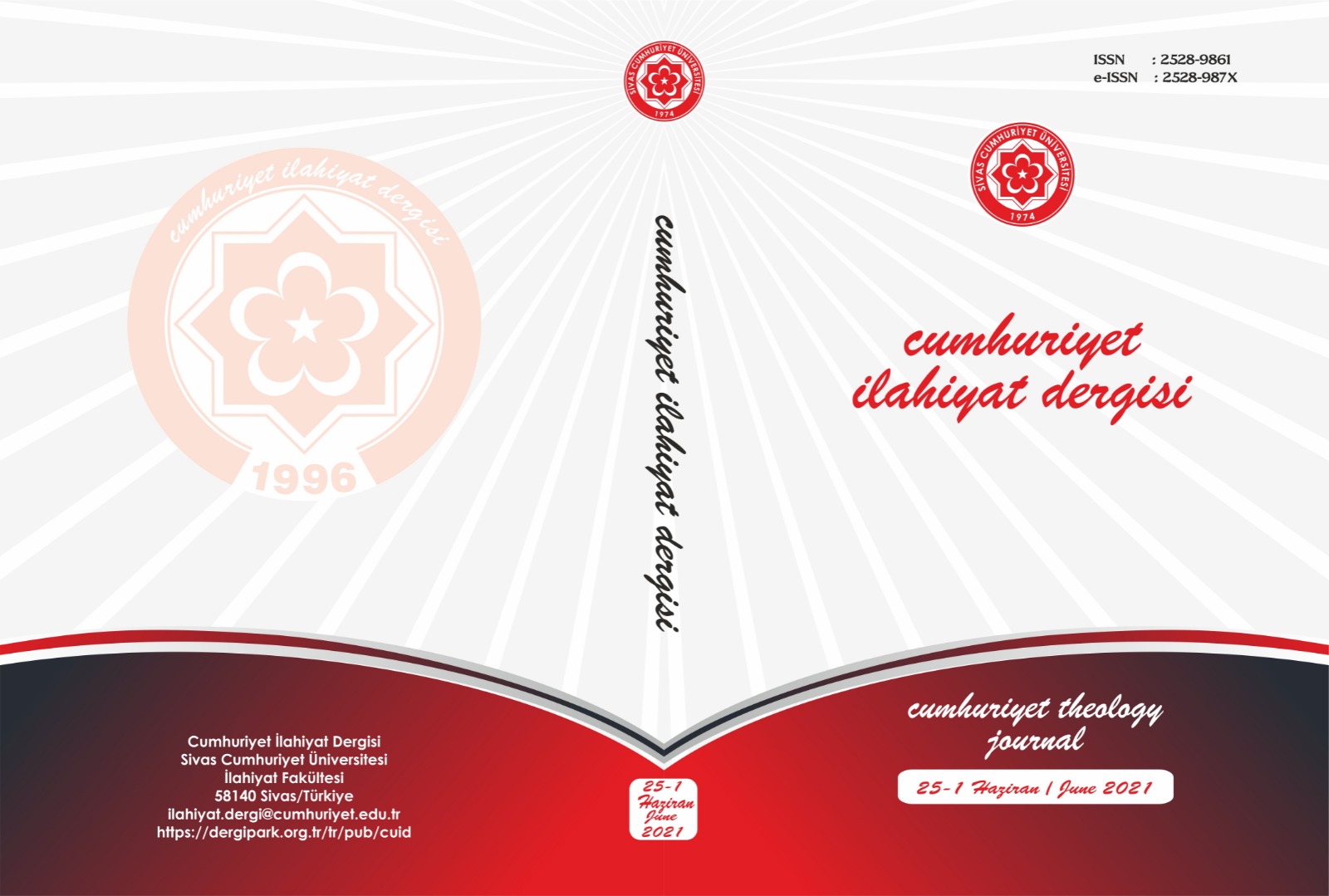Batı Kaynaklı Teorilerin Referans Değeri Bağlamında Faslı Filozof Taha Abdurrahman’ın Emanet Paradigması Üzerine Bir Değerlendirme
In the Context of the Reference Value of Western Theories an Assessment on the Trust Paradigm of Moroccan Philosopher Taha Abderrahmane
Author(s): Soner GündüzözSubject(s): Philosophy, Theology and Religion, Islam studies
Published by: Cumhuriyet Üniversitesi İlahyat Fakültesi
Keywords: Islamic Philosophy; Political Philosophy; Taha Abderrahmane; Holistic Epistemology; Trust Paradigm; Islamic Word-Action Theory; Trusteeship;
Summary/Abstract: The Moroccan philosopher Taha Abderrahmane is one of the leading surviving philosophers of the Arab-Islamic world. His fields of study are issues such as logic, philosophy of language, moral philosophy and political theology. He built a holistic and versatile Islamic methodology in his works and formed a world of thought on the axis of trusteeship (divine contract and trust paradigm) and circulation tedavuliyya (pragmatic-word-action theory). Taha Abderrahmane has analyzed, criticized and constructed the Islamic thought tradition, which he handled with a holistic view, with a versatile reference network. In addition, one of his most important contributions is that he put forward a moral philosophy in the Qurʾānic and prophetic axis. Taha Abderrahmane proved to be a prolific thinker with his thirty-five work consisting of ten thousand pages. He proposes a deliberative model of political communication in harmony with his theo-political writings and physical and metaphysical integrity. While this article aim to provide information on the main components of Abderrahmane’s paradigm of divine contract and trusteeship (i’timaniyya), essentially a theory of morality, such as political theology, linguistics, and negotiation ethics, it also tries to identify the Western references of these elements. In this context how the theory of speech acts that seems quite important in the field of modern social sciences and created by theorists such as John Searl and Austin was transformed by Taha Abderrahmane into an Islamic theory of speech is also subject to a comparative assessment. In addition, the possibility of the issue of negotiation ethics, which gained more importance with new communication theories in the West, in the axis of Islamic thought was questioned in the article. The article reviews how views on negotiation ethics are positioned by Taha Abderrahmane within the Islamic paradigm. Therefore, the article is limited in scope to Taha Abderrahmane’s references about the theories in the West. Taha Abderrahmane attempts to construct an Islamic Pragmatic or Islamic Theory of Verbal Action, with reference to Pragmatics or Theory of Speech Acts, which is a sub-branch of linguistics, but in line with principles specific to the Islamic paradigm. Taha Abderrahmane combined the Islamic concept of pragmatic with the concept of negotiation. The terms “praxis” and “praxeology [fiqh al falsafa]”, which define the framework of the Trust Paradigm and the Islamic Pragmatic Model proposed by Taha Abderrahmane, emphasize “deed” or, in other words, “action” and he is linguistically referencing the founding masters of the pragmatics field such as J. L. Austin and J. R. Searle. However, there are two other fields that constitute the main reference to his concept of praxis (action) and praxeology (action science). These are economics and philosophy. Praxeology is a scientific field that deserves to be mentioned especially with the economist Ludwig von Mises (1881-1973). According to Mises, the laws of the field about which physics, biology, and praxeology [mainly economics] provide information, are independent of human will. These are primary ontological facts that strictly limit the human power to act (Mises, 1998, 67). Taha Abderrahmane references western thinkers such as Ludwig von Mises, Jürgen Habermas, Chantal Mouffe and Hannah Arendt, as well as Islamic sources. However, the way he makes use of them takes place within the framework of criticism and analysis. He also refers to other personalities such as Jonas, Freud, Ellul, Putnam, Ricoeur and Rawls. While Taha Abderrahmane explains the process of turning words into action, he also draws on the Action Theory of Hannah Arendt (1906-1975), who was one of the children of Heidegger, such as Karl Löwith, Hans Jonas and Herbert Marcuse, and who was accepted as a real philosopher even though he rejected the title of philosopher during his lifetime. On the other hand, Taha Abderrahmane makes strong references to the basic dimension of Islam, such as “O believers! If you avoid opposing Allah; It gives you an understanding to distinguish good from bad (Al-Anfal, 8/29)” verse. He makes strong references to the supposed dimension of Islam, and in this context, he tries to create a praxis based on nature, especially based on the hadith known as nawāfil hadith.
Journal: Cumhuriyet İlahiyat Dergisi
- Issue Year: 25/2021
- Issue No: 1
- Page Range: 139-155
- Page Count: 27
- Language: Turkish

